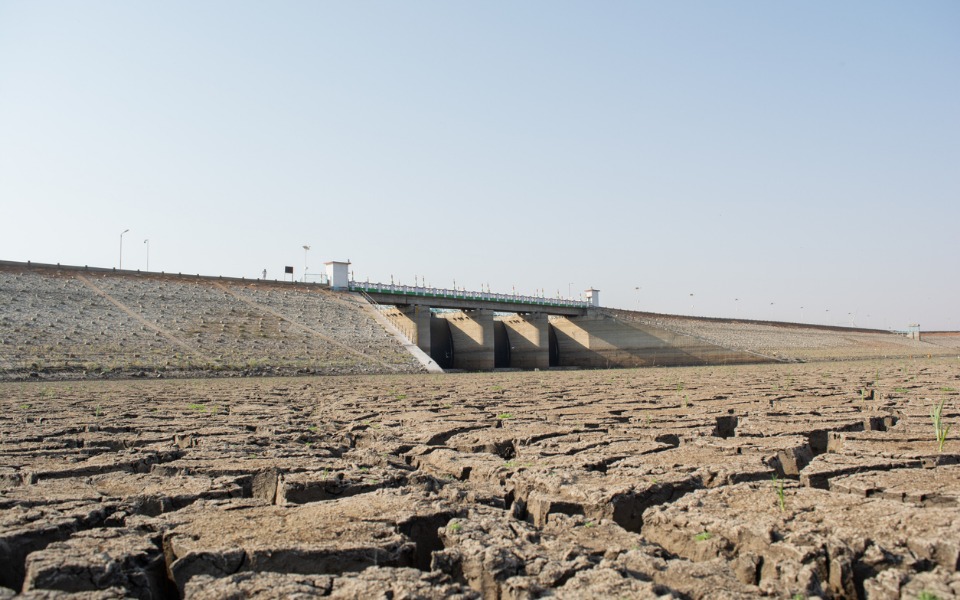
Scant rainfall pushes Jharkhand towards drought-like situation: Officials

Jharkhand is inching towards a drought-like situation due to 45 per cent rain deficit, leading to around 85 per cent of the arable land in the state remaining fallow in the peak monsoon season, government officials said.
Kharif crops were sown in only 4.15 lakh ha against the target of 28.27 lakh ha till July 21 or only in 14.71 per cent of the arable land. In 2022, around 20.40 per cent of the arable land was cultivated till the corresponding date, according to official data. Sowing of paddy, the main crop of the season, was even lesser at 11.20 per cent of the target of 18 lakh hectares. Last year, the figure was 11.76 per cent till July 21.
According to agricultural experts, the ideal sowing period for paddy is from July 1 to July 20. With delayed or scant rainfall in the early months of monsoon in the last few years, many farmers nowadays sow crops till mid-August, but that does not lead to a good harvest, they said. Jharkhand Chief Minister Hemant Soren has also expressed concern over the situation.
Also read: Babulal Marandi takes charge as new BJP Jharkhand president
At a function in Ranchi on Saturday (July 22), he said, “In the backdrop of climate change, farmers must be informed about what changes are required in farming.”
Birsa Agricultural University (BAU), Ranchi, Director Research PK Singh said, “The next seven to eight days are very crucial for the farmers of Jharkhand. If we get a good spell of rainfall, farmers will bring more hectares under cultivation and the impact of the drought situation will be less.”
In 11 of the 24 districts, paddy was sown in less than 5 per cent of the targeted area till July 21. Only West Singhbhum district has recorded sowing of paddy in 50 per cent of the targeted land, according to the state agriculture department data.
Ravindra Mahato, a farmer from Hazaribag, said that he had prepared his paddy nursery on time due to good rainfall since June 20 but could not start transplantation of seedlings from the nursery to farms in July due to scanty rainfall. Agriculture Director Chandan Kumar said the sowing coverage is a matter of concern for the state. “With the assessment of the current scenario, we can say that Jharkhand is inching towards a drought-like situation. With the sowing period coming close to an end, the rainfall is still erratic. Even now, if Jharkhand gets a good spell, the situation is expected to improve,” he said.
Also read: Govt spending Rs 6.5 lakh crore annually on agriculture, farmers welfare: PM Modi
The sowing coverage for other Kharif crops was also not encouraging.
Maize was being sown in 32.99 per cent of the targeted area, down from 50.28 per cent last year. Similarly, coverage of pulses was at 14.77 per cent, while it was 29.72 per cent last year and oilseeds were being sown in 20.05 per cent of the targeted area, down from 33.72 per cent last year, Kumar said. He said farmers are being encouraged to opt for millets to deal with a possible drought situation. “The government is also contemplating financial assistance for the cultivation of millets,” Kumar said.
Jharkhand has registered a 45 per rainfall deficit till Saturday (July 22). The state received 229.3 mm of rainfall from June 1 to July 22 against normal rainfall of 414.9 mm during the period. Twelve districts are facing a rainfall deficit of more than 50 per cent, with Chatra and Jamtara recording the highest shortfall at 75 per cent and 67 per cent, respectively. Only three districts of Sahibganj, Godda and Simdega have recorded normal rainfall so far.
Ranchi Meteorological Centre in-charge Abhishek Anand said, “Jharkhand has received good rainfall in the last two days and it will continue till July 24. Monsoon is likely to be weak till July 27 and thereafter, it may become active again. But I don’t think it will help farmers much.” Anand said symptoms of climate change are visible in Jharkhand and other parts of the country.“Farmers need to change the farming pattern according to the weather. They should also go for some alternative crops,” he said.
Also read: harkhand: Bamboo plantations, salt licks to minimise man-elephant conflict
Kumar said that in 2022, the JMM-led government had on October 29 declared 226 of the 260 blocks of the state as drought-affected and decided to provide a cash relief of Rs 3,500 to each affected farmer family under the chief minister’s drought relief scheme.
The Jharkhand government had also placed a demand for a financial package of Rs 9,682 crore to the Centre for drought-hit blocks in the state. However, the state has not yet received any drought package till date from the Centre, he added.
When another senior official of the agriculture department was asked if a food shortage was likely, he said, “It is too early to comment on that. In case any such circumstances arise, there are various government schemes to compensate.”
(With agency puts)


